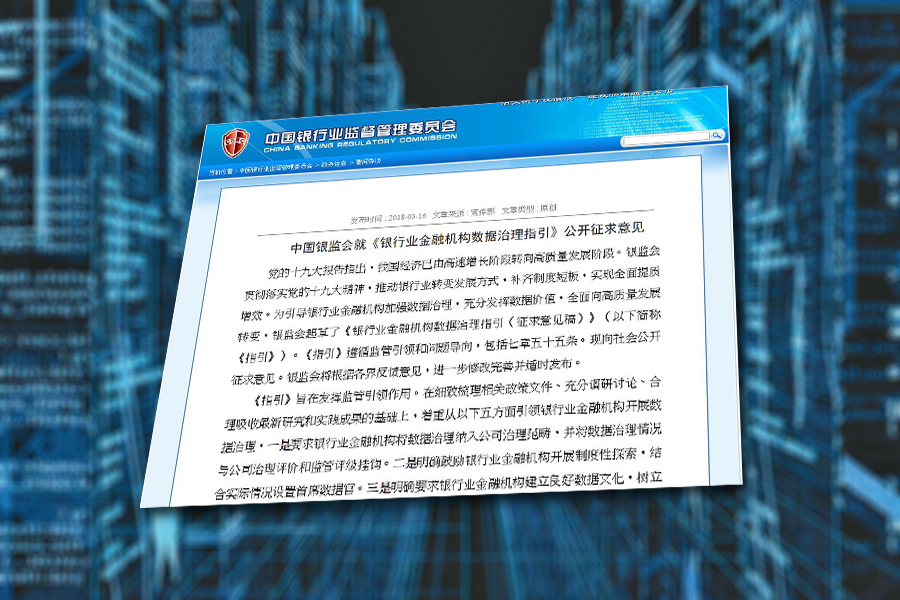◎ On March 16, the CBRC issued a document soliciting views on guidelines for its governance of financial institution data.
On March 16, the China Banking Regulatory Commission (CBRC) issued a document soliciting views on guidelines for its governance of financial institution data.
The document proposed that regulation of bank and other financial institution data should be part of data governance, and that a chief data official should be appointed per actual conditions. The submission of data will be programmable and automated, and the CBRC would regulate data governance.
The big picture:
1. In his 19th Party Congress report, Xi Jinping stressed that the “Party leads everything” and that the Party seeks to “promote further integration of the internet, big data, and artificial intelligence.”
2. On Jan. 5, the CBRC issued the “Interim Measures for the Management of Commercial Bank Equity” to safeguard against shareholders that take up controlling stakes in many companies and proceed to transfer risks from one institution to another.
3. The People’s Bank of China will begin trial regulations of QR-code payments on April 1. Bank or e-commerce institutions must clear their QR-code payments through the central bank’s interbank clearing system or a legally qualified clearing institution. In other words, all transactions on WeChat or AliPay must pass through UnionPay. WeChat and AliPay handle over 90 percent of electronic payments in China.
Our take:
1. The proposed CBRC financial data governance guidelines are yet another Chinese Communist Party (CCP) measure to strengthen its control over Chinese society.
On the one hand, the CCP is seeking to safeguard against financial risks and needs the big data of financial institution transactions. On the other hand, data is a valuable new resource in the new economy, and the CCP is seeking to take possession of the data previously scattered amongst the various financial institutions in the name of supervision and governance.
2. The CCP can use the data collected to advance its anti-corruption drive, as well as extend its surveillance over society and persecute dissidents.












